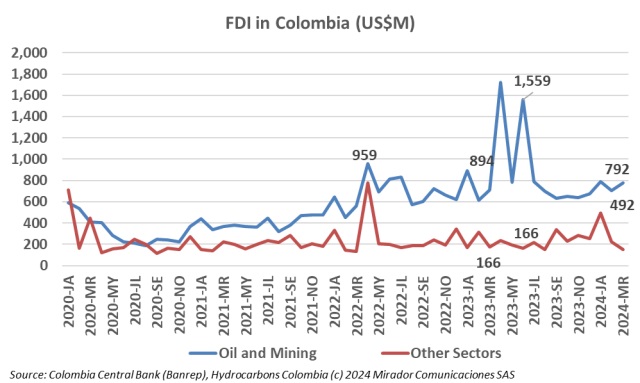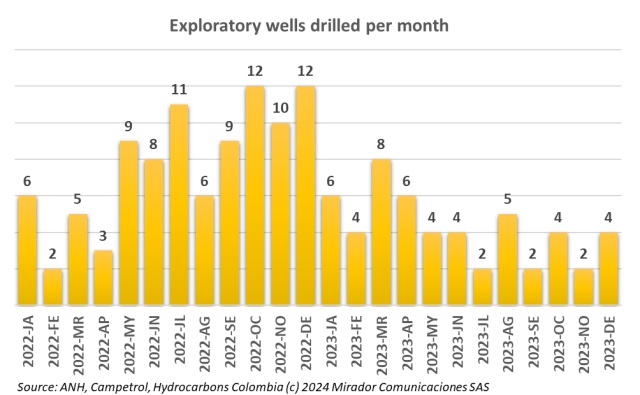The Inspector General’s Office has issued a warning regarding the possible increase in gas tariffs along the Colombian coast.
The Constitutional Court agreed to consider a fiscal impact incident presented by the Minister of Finance (MinHacienda), Ricardo Bonilla, against the ruling that declared unconstitutional the prohibition of deducting royalties from the income tax of non-renewable natural resource exploiters.
At the recent Naturgas Congress in Cartagena, experts emphasized the importance of coordination and complementarity in advancing energy transition through gas.

Colombia’s Central Bank (BanRep) released Foreign Direct Investment (FDI) figures as of March 2024. Here are the details.
President Gustavo Petro proposed a strategic alliance between Colombia’s leading oil company, Ecopetrol (NYSE: EC), and Brazil’s Petrobras.
The National Hydrocarbons Agency (ANH) released a draft resolution aimed at addressing special conditions affecting mission contracts signed from the effective date of Agreement 2 of 2017 or those voluntarily adopting it.

Orlando Velandia, the President of the National Hydrocarbons Agency (ANH), recently provided insights on Colombia’s exploration activities and the country’s energy landscape.
During the closing session of the Naturgas Congress in Cartagena, Colombian President Gustavo Petro sparked controversy by advocating, once again, for the importation of gas from Venezuela.
Ecopetrol’s (NYSE: EC) Ricardo Roa unveiled further details about Colombia’s prospective gas import agreement with Venezuela through the Antonio Nariño gas pipeline.
Colombia secured a significant legal victory against the now-defunct Petroleum Exploration International, formerly known as Pexín.